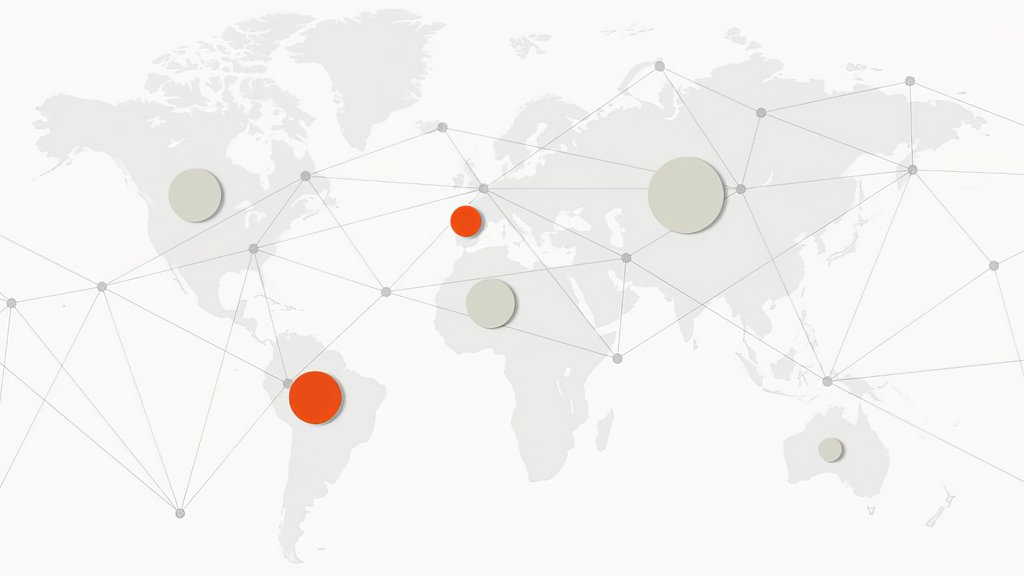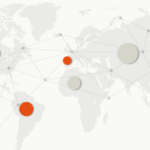By María Paula Jijón & Thalía Jiménez
On 8 March 2024, the strategic alliance between the Madrid International Arbitration Center (CIAM) and the Ibero-American Arbitration Center (CIAR) was signed. The main objective of is alliance, which bears the name CIAM-CIAR, is to consolidate both institutions into the arbitration center of reference in Ibero-America.
For context, CIAM was created in 2020 when the three main and most active, in terms of case loud, arbitral institutions in Spain: Madrid Court of Arbitration (CAM), the Spanish Court of Arbitration (CEA) and the Civil and Commercial Arbitration Court (CIMA) with the Madrid Bar Association (ICAM) as a strategic partner, decided to merge all their international activity into one center which administers only international cases.
However, the centralization of international arbitration was not the only goal of creating CIAM. Another goal was and is to promote equality and unify through a single voice the international arbitration in Spanish and Portuguese among Ibero-American parties considering that they shared the same roots, language, culture and legal tradition.
CIAR, on the other hand, began operations in March 2015, and was the result of the interest in arbitration in the Ibero-American business sector. It was created by the Ibero-American Summit of Heads of State and Government, with the support of the Ibero-American General Secretariat, the Conference of Ministers of Justice of Ibero-America, Bar Associations, Chambers of Commerce and Business Conferences of the 22 Ibero-American countries.
Due to the evident synergies and to further their goals, as of March 2024, after the signing of an official alliance, CIAR’s activity has incorporated into CIAM, resulting in CIAM-CIAR, a single arbitral institution that has already administered over 40 cases with the highest standards for efficiency and excellency while counting with immense public support from Ibero-American countries.
This strategic alliance arises from the need to join efforts to strengthen this position, taking advantage of the experience and reputation of CIAM and CIAR in their respective fields of action. This union promises to open new opportunities and strengthen the presence of Ibero-America on the international arbitration scene.
The evident question that arises now is how will this alliance look like? In practice, this union entails the following:
Firstly, CIAR has transferred all its arbitration activity -present and future- to CIAM-CIAR, meaning CIAR has agreed to transfer all arbitration-related activity and any other dispute resolution mechanism it currently has or may have in the future to CIAM-CIAR. Likewise, all operations relating to the administration of arbitration proceedings shall be governed by the CIAM Rules -both the 2020 version, which is still applicable to ongoing proceedings or the new 2024 version, which is applicable to proceedings since 1 January 2024-. Both versions have been renamed as CIAM-CIAR Rules. These Rules, together with their annexes and internal operating notes, shall be applied in their entirety to all proceedings to be administered by CIAM-CIAR.
Secondly, CIAM and CIAR will continue to develop all their higher education activities from CIAM-CIAR. This includes CIAM-CIAR’s Advanced Practice Course for Arbitrators, which is debuting its first edition this spring in collaboration with the Spanish and Ibero-American Arbitration Club. This course is intended to provide technical know-how to arbitrators with renown international arbitrators as professors. Moreover, CIAR will carry out all its continuing education activities from CIAM-CIAR, including the Postgraduate Course in International Arbitration currently under development in collaboration with the University of Salamanca and Tirant lo Blanch.
Thirdly, CIAM-CIAR will retain its current headquarters at the «Palacio de Santoña», located at 13 Huertas Street in Madrid, which will be the office from which all CIAM-CIAR arbitrations are administered, including the various hearing rooms available for any ad hoc or institutional arbitration. In addition, in a commitment to Ibero-America, CIAM-CIAR will maintain the other two CIAR offices located at the headquarters of the Costa Rican Bar Association and at the headquarters of the Ordem dos Advogados in Brazil. These offices may also be used as locations for CIAM-CIAR arbitration hearings.
Finally, with regard to the organizational structure, CIAM’s previously established structure will be maintained. Jose María Alonso Puig is still CIAM-CIAR’s President and Marta Lalaguna is still Secretary General. However with this union Javier Íscar de Hoyos, CIAR’s founder and former President, has been incorporated as Vice-President of CIAM-CIAR, along side with Juan Serrada, Urquiola de Palacio and Elena Otero-Novas and Eliana Baraldi, CIAR’s former Secretary General, as a member of the Plenary.
In conclusion, the union of CIAM-CIAR marks a significant milestone in the evolution of international arbitration within the Ibero-American region. By consolidating the strengths and expertise of CIAM and CIAR, this alliance aims to become the foremost arbitration center for Spanish and Portuguese-speaking parties, enhancing the efficiency and excellence of dispute resolution services. The integration of CIAR’s activities into CIAM-CIAR, alongside the harmonization of arbitration rules and the continuation of high-level educational initiatives, underscores a commitment to fostering a unified and robust arbitration framework.
This strategic partnership not only leverages the historical, cultural, and legal commonalities within Ibero-America but also positions CIAM-CIAR as a pivotal player on the global arbitration stage. With its centralized operations, prestigious headquarters, and esteemed leadership, CIAM-CIAR is well-equipped to handle a growing caseload while advancing the quality and accessibility of arbitration services throughout the region.
As CIAM-CIAR continues to build on the legacies of its predecessor institutions, it promises to open new opportunities and reinforce Ibero-America’s presence in the international arbitration arena, ultimately contributing to a more cohesive and influential arbitration community.





